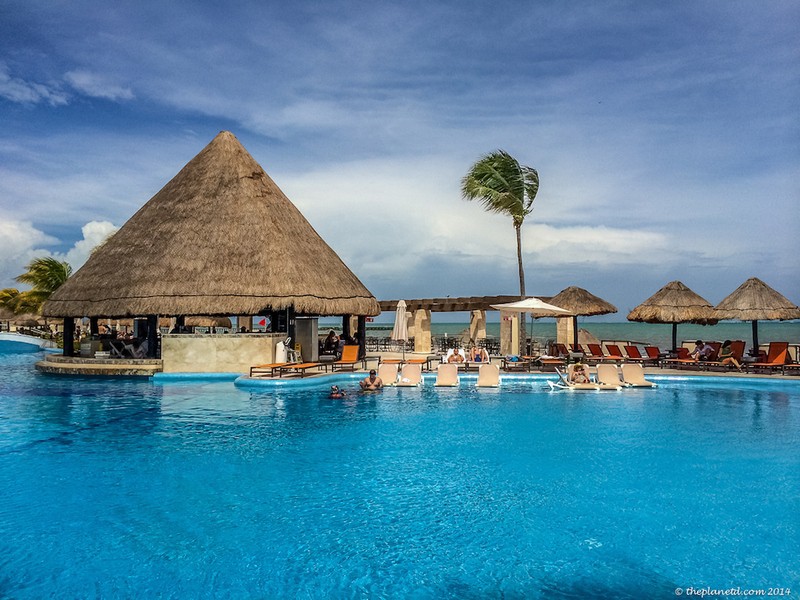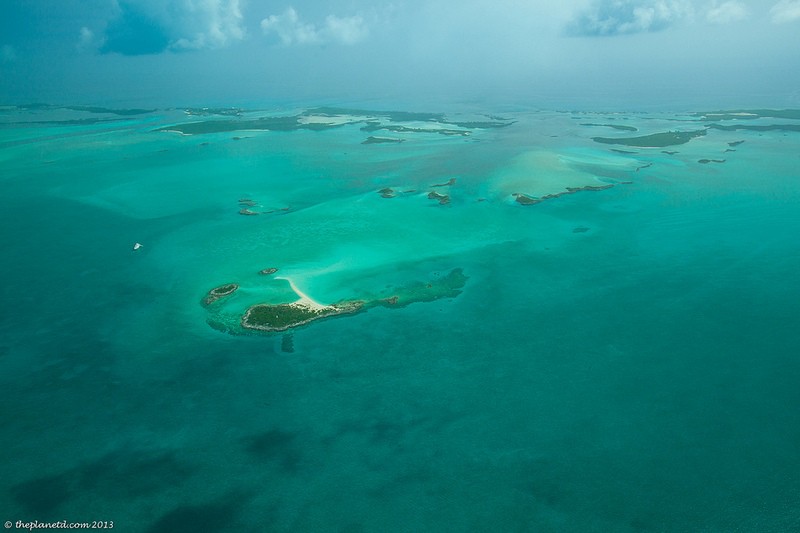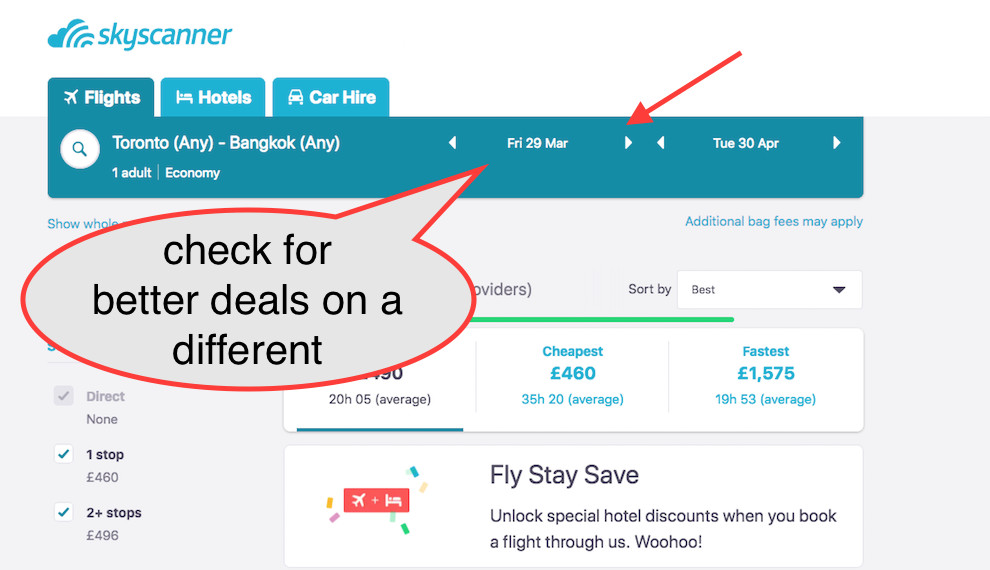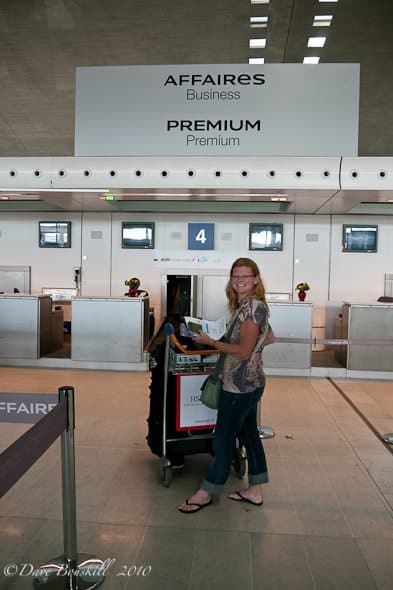Planning travel can be overwhelming. It can be difficult deciding on what destination you want to go to, what activities you want to do and what budget you want to spend.
It’s hard enough planning a trip, let alone planning your dream trip. But we’ve put together a list of questions to ask yourselves before you decide to book your flight or buy a package. If you follow these steps, you’ll have the tools to create the vacation of a lifetime without breaking the bank.
Tips to Help You Plan Your Dream Trip
We have planned countless trips for ourselves and friends and have learned a few things along the way. Now, we follow a certain criteria when we are planning our tips. It makes things a lot easier, and it can save you both time and money. So, let’s get started.
1. Decide Where you want to go


We have been to 110 countries, and we still have a hard time choosing our destination. It’s a big world and whenever we plan our vacations, we can feel overwhelmed deciding on what destination to choose. So, instead of just picking a country out of a hat, we think about what we want to do.
What do you want to do?
- Do we want our trip to be an adventure?
- Do we want warmth and sunshine?
- Do we want a beach to walk on?
- Do we want to be in the mountains?
- Are we looking for cultural experiences?
- Do we want to relax?
Once you have decided what kind of trip you are looking for, it is time to get specific. It is a lot easier to budget for your trip when you have more than just a general destination in mind. It also helps you set a clear goal For example, instead of choosing “Europe” as your destination, think more along the lines of “Paris in Fall” or “Rome in June.” When you have more of a detailed idea, it is easier to plan and budget your trip.
Also, Consider the best time to visit your chosen destination. Some places have peak season, off-season, and different weather conditions that can make a big difference to your experience. For example, visiting a tropical island during the rainy season might not be ideal. Checking the best times to visit can also help you avoid crowds and potentially save money.
Here are some good resources to help you choose your destination.
2. Decide When You Want to And For How Long


If you have flexibility in your dates, you can go anywhere. But if you have fixed travel dates because of work, look for the destinations that are in the offseason that fit into your schedule.
Shoulder seasons are different for each part of the world. The high season in Peru is very different from the high season in the Bahamas. Can you travel during the shoulder season when everyone else is at work? You can save a lot of money during the off-season, and the crowds are far less.
It’s worth looking into the time of year you are traveling and then deciding on a destination that is currently just coming out of, or just about to enter the high season.
You will also have to decide how long are you going away for? Are you going away for a week? A month? A year? The length of the trip will have a huge impact on your travel planning and budget.
3. What is your budget?


Before you continue planning, you need to set a budget. This will dictate all the decisions that follow – accommodation, activities, transport. How much can you afford to spend without compromising your financial stability? Factor in everything – flights, hotels, meals, activities, souvenirs, emergency funds. With a clear budget you can prioritise your spending and avoid financial strain.
Research the costs of your chosen destination. It can be easy to go down a rabbit hole on the internet, so we recommend researching costs with these simple steps:
- Check out our list of Destination Guides
- Buy a Guidebook for your chosen location
- Check sites like Get Your Guide for approximate costs of activities
- Use Skyscanner to set flight alerts for your route and get a cost estimate.
Keep an eye out for deals, discounts, and promotions that will make your trip more affordable. Having a budget in place will give you a framework to plan the rest of your trip.
We suggest having a daily budget in mind so you don’t get too overwhelmed. For example, when we went to Greece for 2 weeks, we had a budget of $2800 USD or roughly $200 per day for two people that included our flights, activities, transportation, food and accommodation. Some days we spent less and some days we spent more but we had a number in mind before we went to we didn’t go over that budget.
Here are some guides to help you budget out your costs:
4. Are my Travel Dates Flexible?


Is your dream trip a spur-of-the-moment vacation where you’ll be looking for last-minute deals? It’s possible to get great discounts if you can book at the last minute.
If you have flexible dates, you can save a bundle as well!
We use Skyscanner to search for flights and look 3-5 days on either side of our desired date. We have saved thousands of dollars on a flight (for two people) just by moving our travel dates by a day or two. We’ve also found business class tickets for the same (or cheaper) flight on a different date than flying coach.
5. How Far Will Your Dollar Stretch?


We also think about currency exchange. For Canadians, the United States can be an expensive vacation, but for people making purchases on the Euro or British Pound, it can be a bargain.
We look up the exchange of the country to see how far our Canadian dollar will go. How far will your dollar stretch? The British Pound is worth a lot more than the Mexican Peso, for example.
We’ve splurged on what felt like an ultra-luxury vacation in Mexico (for our Canadian budget), but when we talk to someone from Britain, it’s quite affordable to them.
6. Plan Your Itinerary
Once you’ve decided on your destination and your budget, it’s time to start planning your trip. Make a list of the main activities and sights you want to see. Make a list of must-sees and consider the time required for each. Prioritize your interests, but leave some room for spontaneity. We suggest using that guidebook you purchased or checking out our Travel Itineraries section to get ideas on all of the amazing things to do in a ton of destinations.
Break your itinerary down into daily plans so you don’t overbook yourself. Balance high energy activities with downtime to avoid burnout. Also check if any attractions require bookings or tickets. Having a plan will help you make the most of your time without feeling rushed or overwhelmed.
7. Get a Rewards Credit Card


You’ll see this in a lot of “How to Plan Your Travel” posts, And with good reason! Avid travelers recommend rewards credit cards because they work!
If you know you are going to be traveling a year from now, sign up for a credit card that offers rewards.
Luckily, these days, most travel rewards cards have sign-up bonuses that can add up to 100,000 miles as long as you meet their minimum monthly spending requirement. That could translate into a free flight anywhere in the world!
Put your everyday purchases on that card to rack up the points, but make sure to pay it off monthly.
Dave and I have put thousands of dollars in points towards a luxury vacation with our own private pool en-suite. We couldn’t’ have afforded such a luxury room without them. We’ve stayed all over the world, using our American Express points.
We always have several hundreds of dollars worth of points to use because we use our card to buy the everyday items that we would already need to purchase like gas, groceries, and day to day items. Points can add up quickly. But remember, don’t overextend yourself. Ever.
8. Book Your Flights
Once you’ve finalized your itinerary, it’s time to book your flights. Hopefully, you got a big sign-up bonus on the travel credit card we suggested, and those are in your account. If you are using miles, the flights will have to be booked through the airline or credit card website, depending on who you went with. Two to three months in advance is the sweet spot to get cheaper flights.
If you do not have a rewards card then you can start by comparing prices on flight comparison websites like Skyscanner, Google Flights and Kayak. These are the sites we recommend. Look for the best deals and fly on weekdays or off-peak hours to save. Check the baggage policies and any extra fees that apply.
When booking flights also consider the layovers and total travel time. Direct flights are more convenient but more expensive. If you do opt for layovers make sure you have enough time between flights to avoid stress. Booking early can get you better rates but sometimes last minute deals are available if you’re flexible with your travel dates.
9. Book Your Accommodation


Now that you have your flights booked, it’s time to sort out your accommodation. Decide what type of lodging you want – hotels, hostels, vacation rentals, or bed and breakfasts. Depending on the trip we take, we sometimes want a luxury 5-star hotel, but other times, a budget hotel will do just fine. If we stay in a place for an extended period of time, we will want to look at apartment rentals and Airbnbs. When staying in an apartment and cooking meals at home, we can save our budget for adventures like climbing mountains or kayaking.
We find our best deals on accommodation with these sites:
- Booking.com for all of our European, African, and Middle Eastern travel.
- TripAdvisor for North America and Asia Travel
- VRBO for apartment rentals and long-term stays
Make sure to read reviews and find the best deals. Consider the location, amenities, and cancellation policies before you book.
Look for places that offer free cancellations or flexible booking policies, especially in uncertain times. Staying in central locations can save you time and transportation costs even if the accommodation itself is a bit more expensive. Or, if you want a more local experience, stay in neighborhoods outside the main tourist areas.
10. Plan and Book Your Activities
You will have outlined what places you want to visit and highlights you want to hit, so now it is time to book those activities in advance. We don’t recommend booking all of your activities in advance, as you may change your mind when you get there, or sometimes activities are cheaper when booked in the country. But for some things that require advanced bookings, like The Acropolis in Athens or the Burj Khalifa in Dubai, we recommend booking in advance to secure your spot.
Also, if you are traveling for an extended time, just book as you go because you have more flexibility.
If you book through providers like Get Your Guide or Viator, make sure to check the cancellation policy for each one so that if you can’t make it, you know when to cancel and not get charged.
11. Arrange Transportation
Once you’ve got your accommodation sorted, think about how you’ll get around. Research the local public transport options – buses, trains, trams. In some places, renting a car might be more convenient, especially if you’re going to be exploring rural or remote areas. Check car rental prices and policies on Rentalcars.com or local rental agencies.
For cities with good public transport, look into travel passes that offer unlimited rides for a set period. These can be cheaper and easier. If you’re going to be using taxis or ride-sharing services like Uber or Lyft, download the apps and familiarise yourself with the rates. Planning your transport in advance means you can get around stress-free and enjoy your holiday.
12. Pack Smartly
Packing is key to holiday prep. Start with a packing list based on your destination and activities. Include the essentials like clothes, toiletries, meds, and important documents. Packing cubes help to keep your suitcase tidy and make the most of the space. Pack versatile clothes that can be mixed and matched.
Check the airline’s baggage policy to avoid extra fees. Keep your valuables and important documents in your carry-on. Also, pack a small first aid kit and any travel adapters for your electronics. Packing smart means you have everything you need without overpacking and makes travel more comfortable.
Use these resources to up your packing game:
13. Check Your Documents


Before you travel, make sure you look to see if you need visas. Is your passport up to date? Many countries won’t let you enter if your passport expires within 6 months.
If you are renting a car, do you need an international driver’s license, or will your home country’s license suffice? After you’ve done everything. Make backup copies of all your documents and store them on email or in the cloud.
14. Prepare for Emergencies
Be prepared for emergencies and have a stress-free holiday. As we said above, make copies of important documents like your passport, visa, travel insurance, and emergency contacts. Keep digital copies on your phone or email. Know the location of the nearest embassy or consulate and have their number handy.
Buy travel insurance that covers medical emergencies, trip cancellations, and lost luggage. Know the local emergency numbers and hospitals. Carry a basic first aid kit and any medication you may need. Being prepared gives you peace of mind and allows you to handle anything that comes your way.
Read More About Travel Safety Below:
15. Stay Informed and Flexible
And finally, stay up to date with your destination. Check travel advisories, weather forecasts and local news that might impact your plans. Follow health and safety guidelines especially with global health concerns. Being informed helps you make better decisions and stay safe while on trip.
Flexibility is key to a great vacation. Things don’t always go as planned—flights get delayed, weather changes or attractions close unexpectedly. Having a flexible mind allows you to adjust and find alternatives. Embrace the unexpected and enjoy the ride, knowing a well planned vacation can still have surprises.
By implementing this advice and tips, you are guaranteed to have a great time, save some money, and travel stress-free. If you have any tips or tricks you would like to share, be sure to leave them in the comments.





